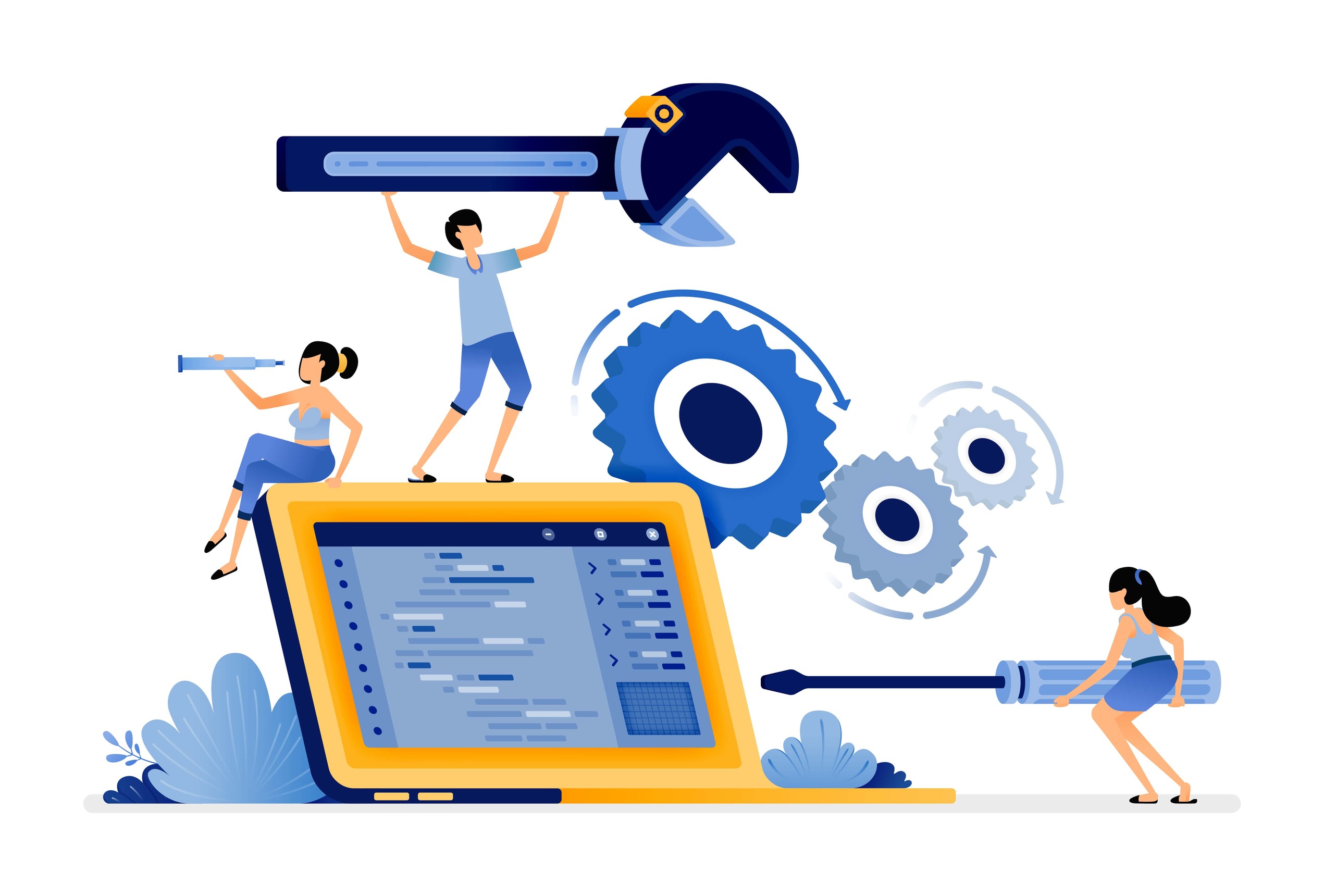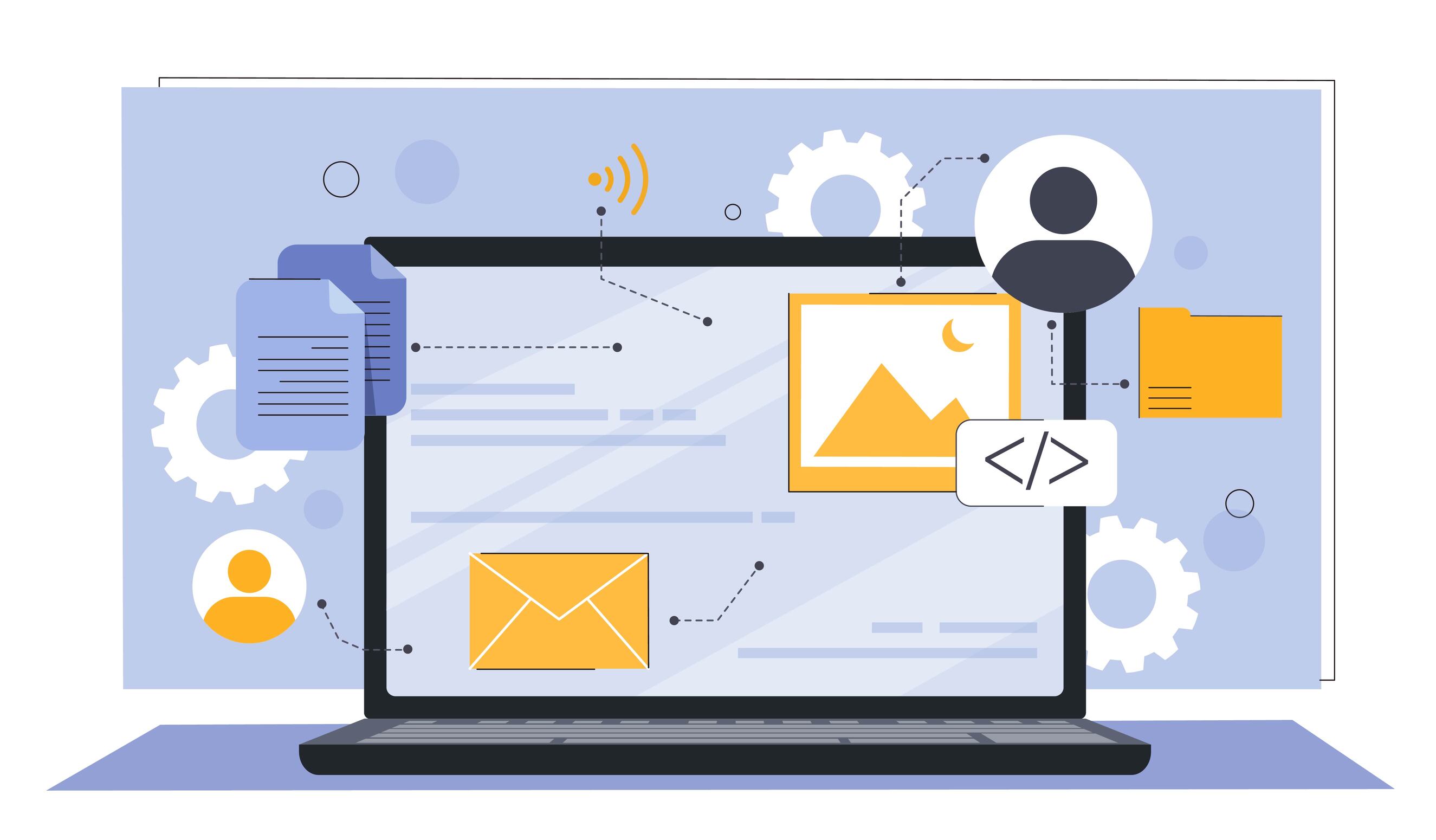Organizational Portal - A Solution for Knowledge Management in the Organization
Corporate portal

 3712
3712 
Organizational Portal - The Key to Effective Knowledge Management in the Digital Age
In the modern era of information overload and advanced technologies, many organizations face a significant challenge in managing organizational knowledge. Essential information is scattered across different systems, there is poor communication between departments, and employees struggle to locate relevant data in real-time. An organizational portal serves as a comprehensive solution to these issues, acting as a central platform that allows convenient access to information, efficient knowledge sharing, and preservation of organizational knowledge over time.
The Main Challenges in Organizational Knowledge Management:
- Fragmented and Inaccessible Information: When critical information is stored in separate systems and different formats, it is difficult for employees to find what they need when they need it. Lack of central access leads to wasted precious time and decision-making based on incomplete information.
- Absence of Communication and Knowledge Sharing: Without a common platform, teams may work in silos, each keeping their knowledge and insights to themselves. Lack of information sharing hinders mutual learning and team innovation.
- Difficulties in Preserving Institutional Knowledge: When experienced employees leave the organization, their knowledge and experience often get lost. Without mechanisms for documenting and preserving knowledge, organizations lose valuable intellectual assets.
- Information Security and Privacy Risks: Managing sensitive information in decentralized systems increases the risk of leaks and security breaches. Without central access control and a uniform security policy, critical information may be exposed to unauthorized parties.
The Benefits of an Organizational Portal in Knowledge Management:
- Centralized and Convenient Access to Information: An organizational portal centralizes all critical information in one place, allowing employees to easily find what they need, anytime and from anywhere. Intuitive searching and a user-friendly interface save precious time and enhance productivity.
- Knowledge Sharing and Collaboration: An organizational portal provides a platform for sharing information, ideas, and insights among teams and departments. Tools such as forums, blogs, wikis, and shared documents enable employees to learn from each other, share best practices, and promote innovation.
- Documenting and Preserving Institutional Knowledge: An organizational portal allows for the documentation and preservation of knowledge and experience accumulated over time. Comprehensive document libraries, structured databases, and organized reporting processes ensure that no critical knowledge is lost when employees leave.
- Permission Management and Information Security: The portal allows for the setting of complex access permissions, so each employee only sees the information relevant to their role. Additionally, advanced cybersecurity tools and data encryption protect sensitive information from unauthorized exposure.
Strategy for Implementing a Successful Organizational Portal:
To ensure success in implementing an organizational portal for knowledge management, several essential steps should be taken:
- Defining Clear Goals: Develop a comprehensive knowledge management strategy that aligns with the organization's business objectives and choose a platform that optimally meets specific needs.
- Involvement of Management and Senior Leadership: Engaging the commitment of senior management in the process and defining an exciting vision that encourages employees to adopt the portal and actively contribute knowledge.
- Extensive Training and Implementation: Allocating dedicated resources for training employees in using the portal, with an emphasis on the concrete benefits for each role. Developing a comprehensive implementation plan to ensure rapid adoption of the platform.
- Encouraging a Knowledge Sharing Culture: Creating incentives and public recognition for employees and teams that actively contribute to enriching the organizational knowledge base. Fostering an environment that encourages mutual learning and cross-organization collaboration.
- Continuous Improvement and Adaptation to Changes: Ongoing measurement of portal usage and the value derived from it, along with continuous improvements based on field feedback. Openness to adopting technological innovations and adapting the portal to organizational and business changes.
In Conclusion:
An organizational portal is a critical strategic tool for effective knowledge management in modern organizations. By making information accessible, encouraging sharing, and preserving knowledge over time, the portal improves decision-making, accelerates innovation, and provides the organization with a competitive advantage in the digital age.
However, to maximize the benefits of an organizational portal, it should be regarded as an ongoing business initiative rather than a one-time technology project. Success requires senior leadership, a supportive organizational culture, and long-term commitment.
Organizations that successfully implement an organizational portal at the core of their knowledge management strategy will find themselves much better equipped to address the challenges of the VUCA world (Volatility, Uncertainty, Complexity, and Ambiguity) and seize new opportunities in an era of rapid changes.
If you wish to learn more about how an organizational portal can enhance your organization's knowledge potential, we invite you to a no-obligation consultation meeting with our experts.






